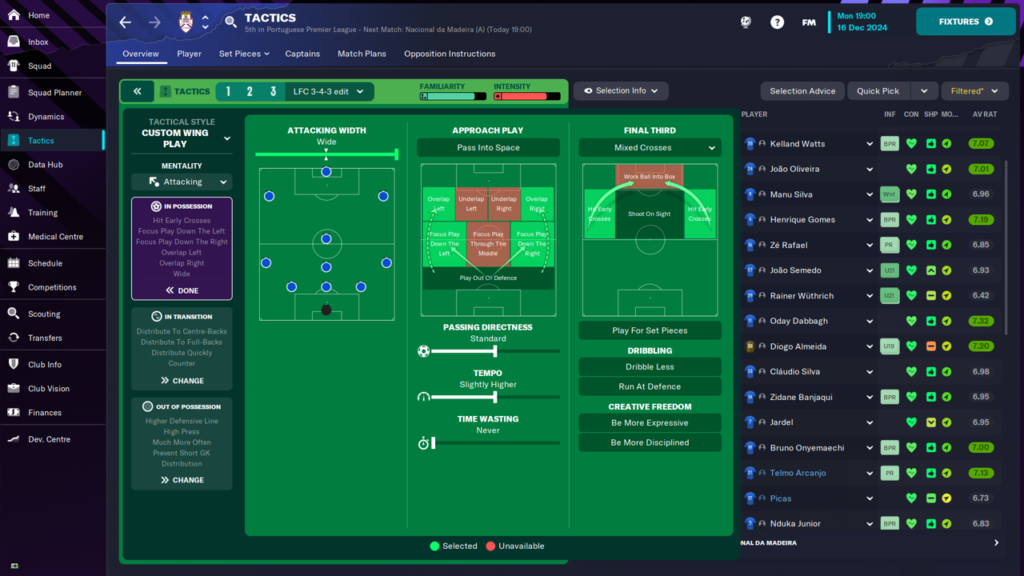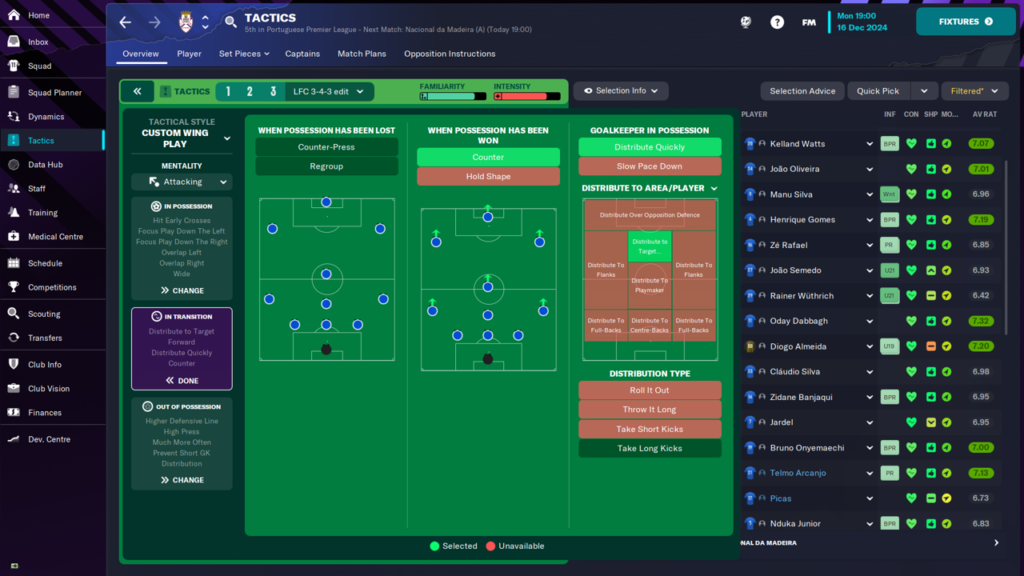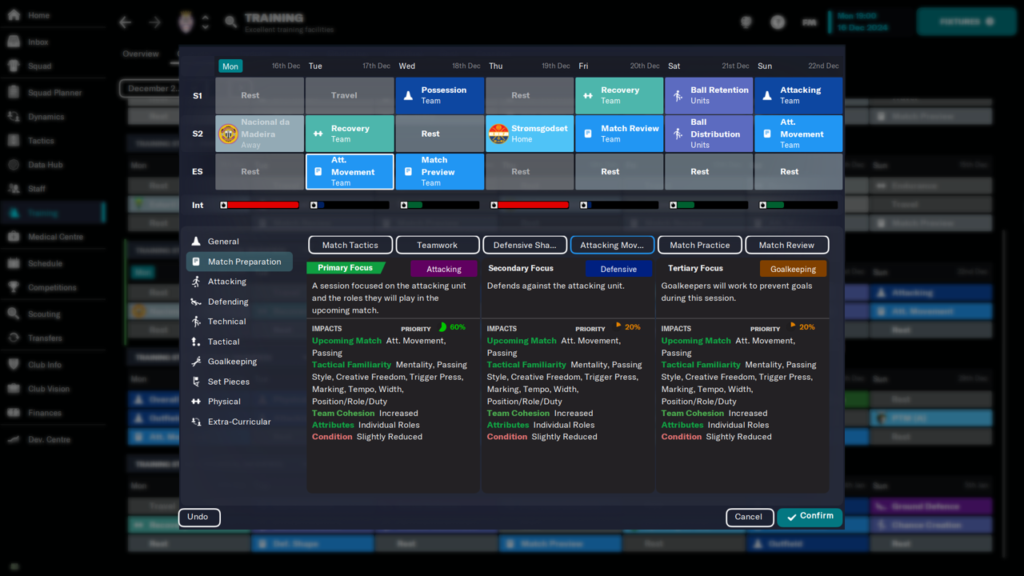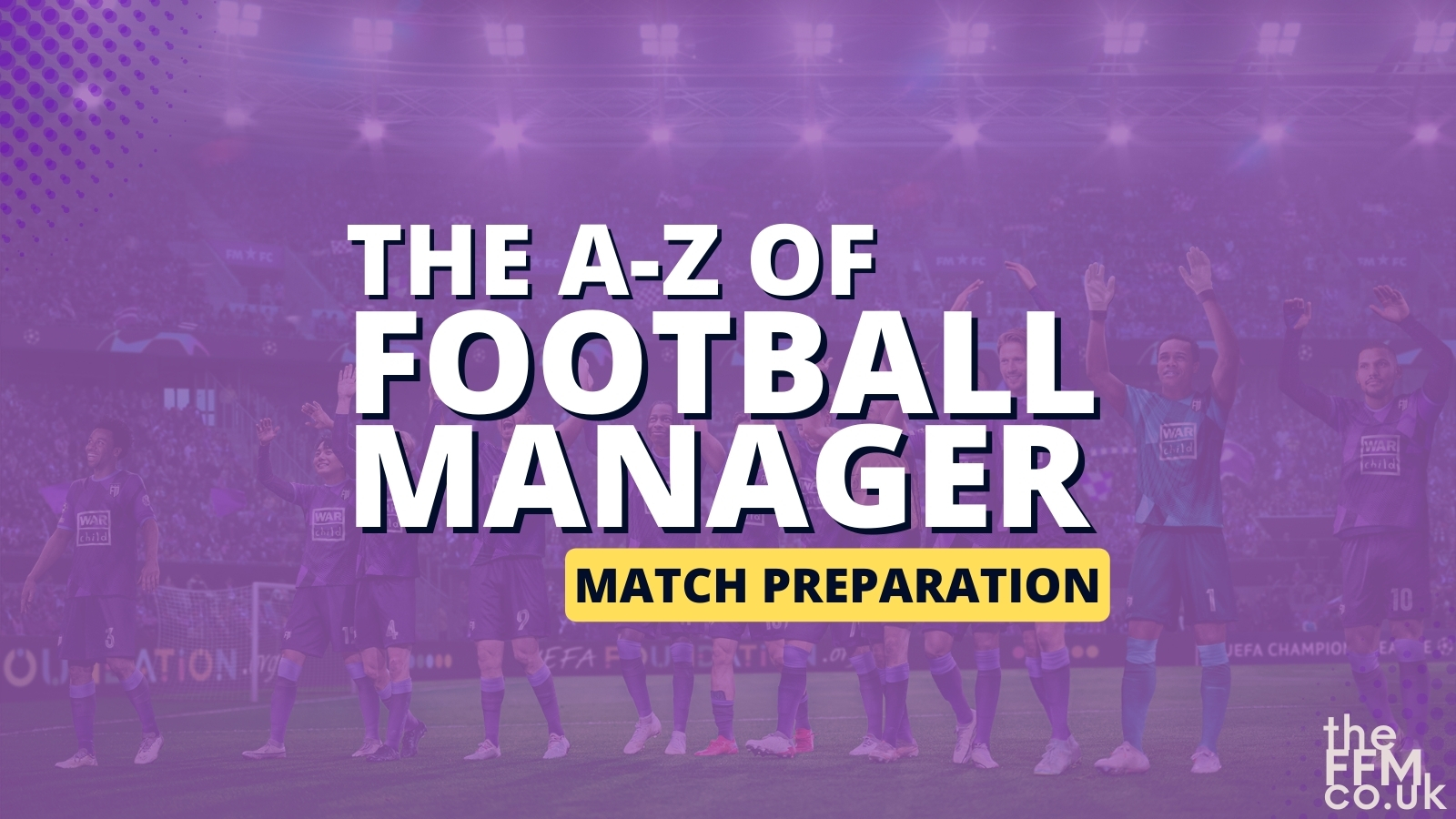Update, June 2025: This series has now been archived.
You can view the full A-Z of Football Manager collection here: Visit the A-Z Archive
M is for Football Manager Match Preparation by @JManship19
In the words of Michael Scott, I’m not superstitious, but I am a little-stitious, and there are a few things I have to do in the days leading up to match day, one of them being that I take the majority of pre-match press conferences myself, only sending my assistant in early rounds of cup competitions or league games where we are overwhelming favourites to win. I know that it makes absolutely no difference to the outcome of a game, but apparently I’m married to the idea that the game will punish me for skipping the conference.
Don’t worry, the rest of this entry contains actual tips for match preparation! Whether you play FM with more of a hands-on approach or delegate a lot of the jobs to your backroom staff, match preparation is a vital aspect of how your season unfolds.
We all take part in match prep, just in different ways. From planning training based on your upcoming opponent to tweaking your tactics in an attempt to exploit an opposition weakness, there are a few tips and tricks that you can use to give you the best possible chance of picking up the win!
Let’s start with team selection.
If you’re like me, you’ll still ask for the opinion of your trusted assistant manager for the starting 11. I’ll select the 11 that they recommend before making a couple of adjustments if I think a certain player(s) should be on the pitch—I think that’s what they call teamwork!
I guess the morale of the story here is trusting your assistant manager all the time is unwise, but to never trust them at all is just plain foolish, so find the balance.
An additional tip for those who like to give first-team opportunities to academy players: be sure to mark them unavailable for selection for said academy; otherwise, you won’t be able to select them or they’ll be straight up exhausted.
There are other small details with team selection that I abide by, from not bothering with a goalkeeper on the bench to allow for an extra outfield player amongst the subs to making sure I have a nice mix of like-for-like changes and players of different styles, but most of the team selection process depends on who you’re facing next and what players you have available.
Tweaking tactics depending on your next opponent.
While it may sound obvious to some, it may not have occurred to others that it can be effective to pick players who can exploit opposition weaknesses and alter certain tactics and instructions to really nail it home.
For example, if I’m playing a team that struggles aerially—teams that concede a lot of goals from crosses, set pieces or have generally short defenders—I’d pick my striker(s) who are more physical, taller, and/or have good aerial attributes (heading, jumping reach) and set the instructions to something similar to below (don’t forget you get regular team reports from your staff where you can get this kind of information!)

The focus point here is the instructions, not the formation, although this shape is extremely effective for wing play and, by extension, scoring goals from crosses. Instructions like overlapping full-backs and focusing the play down on one or both flanks encourage play that will get your team into crossing positions on a more frequent basis.
There is some leeway when it comes to final third instructions: setting instructions to hit early crosses can be effective if you have wide players with good crossing stats, whereas working the ball into the box can still be a good option if you prefer to build your play closer to the byline before getting crosses in.

Another useful instruction to apply is to ask your goalkeeper to try to pick out your target man. This is a useful option if your defenders aren’t the most reliable on the ball and you want to get into the other half as quickly as possible.
If your target man is any good, they’ll be able to either flick the ball on to a winger or bring the ball down and feed the ball off to a teammate. Again, this is being recommended in relation to exploiting opposition weaknesses, so this isn’t going to work against everyone.
The most important thing you can do in preparation for a match.
Without getting into the finer details of training, even if you hate the idea of running that side of things in FM, this part is so easy and beneficial that it should be a no-brainer.
What if I told you that there are certain training sessions that give your players ability boosts for the next 7 days? I promise, I’m not lying!

You will get regular messages in your inbox about training weeks where you can alter your sessions, or you can head to the calendar in the training screen to edit any week in the season. From there, to access the match boost training, hit the match preparation tab on the left and it will show you the list of sessions in that area.
Take the week I am currently playing in. I have a midweek game in the UEFA Conference League at home to Strømsgodset, who have conceded 9 goals in the opening 5 games of the UECL league phase, and we’ve scored 14 in 5.
So, looking at those numbers, I want to focus on and build upon our attacking threat and their defensive issues. This training session will only slightly reduce player stamina but give boosts to a range of attributes. Oh, and the sessions under the set-piece training tab are also boosts for your next match.
So, the advice is to always have at least one match preparation session in the week leading up to the match, often based on who you’re facing. I also highly recommend adding the match review session after every single game, as it helps the squad with tactical familiarity and team cohesion.
The final point for this tip is that while you can stack different match boost trainings in one week (i.e., teamwork training on Monday and defensive shape training on Wednesday) to be effective in the next match, you can’t stack the same training session over and over again in the same week.
So if you add more than one attacking movement training session in the same week, you’re essentially wasting training slots, as those extra attacking movement sessions have no extra impact.



